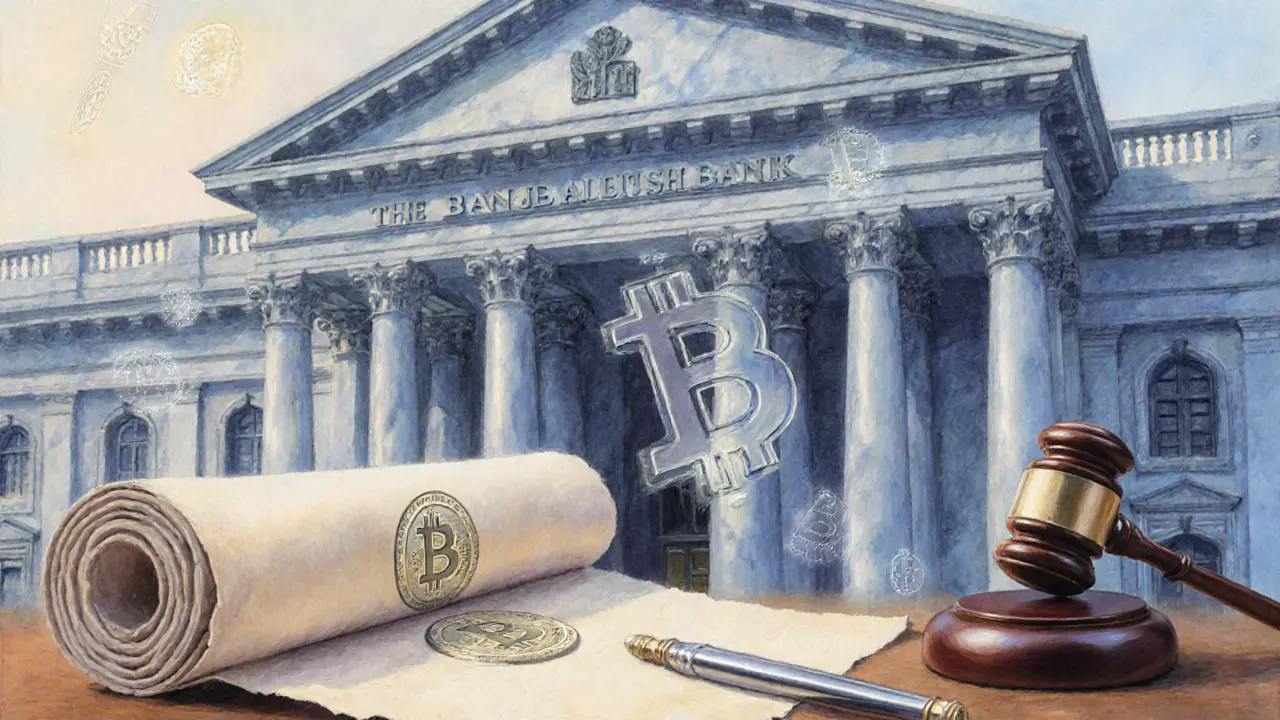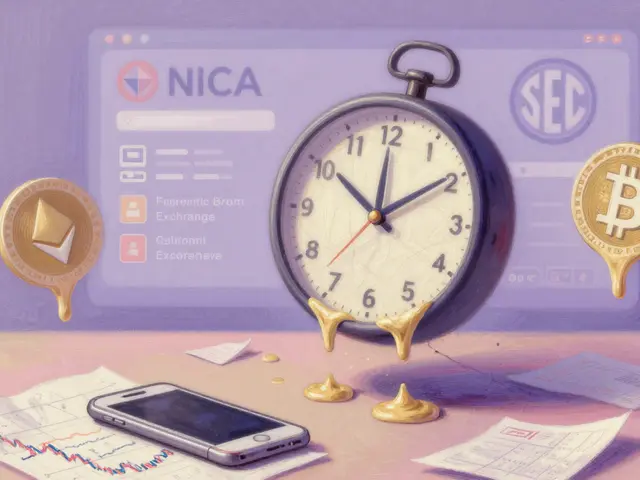Crypto Ban Bangladesh: What It Means for Investors and Developers
When dealing with Crypto Ban Bangladesh, the official prohibition of cryptocurrency transactions, exchanges and related services inside Bangladesh. Also known as Bangladesh crypto crackdown, it targets anyone who tries to buy, sell, trade, or develop digital assets without a government licence. The ban stems from the 2018 circular issued by the Central Bank of Bangladesh, which declared that virtual currencies are not legal tender and warned banks against facilitating related activities. Violations can lead to fines, account closures, or even criminal prosecution, and banks are required to report suspicious crypto‑related transactions to the authorities. In short, crypto ban Bangladesh creates a legal environment where crypto use is effectively illegal, and compliance is enforced through strict AML monitoring and financial supervision.
Key Players Behind the Ban
The enforcement network revolves around a few core agencies. Bangladesh Financial Intelligence Unit (BFIU), the agency tasked with detecting and reporting suspicious financial activity works hand‑in‑hand with Bangladesh Bank, the country's central bank that issued the original anti‑crypto circular. Together they monitor bank statements, flag large crypto‑related transfers, and coordinate with law‑enforcement when needed. Digital asset exchanges, both local and foreign, are classified as “unlicensed financial service providers” under the ban, meaning any platform that facilitates buying, selling, or swapping crypto must stop operations or face severe penalties. For local startups, this translates to halted product development, loss of investor confidence, and difficulty raising funds. On the user side, Bangladeshi residents who hold crypto abroad risk having their accounts frozen if the activity surfaces in a bank’s AML report. These entities create a tightly coupled enforcement loop: the central bank defines policy, the BFIU detects violations, and banks execute the freeze or reporting actions.
Bangladesh isn’t alone in taking a hard line. Iraq’s cryptocurrency ban, a total prohibition that also pushes the country toward a state‑run CBDC mirrors many of the same concerns—money‑laundering, capital flight, and lack of regulatory clarity. Both bans illustrate a broader pattern where emerging economies opt for outright restrictions before establishing clear frameworks for digital assets. While some nations, like Nigeria, have embraced crypto despite regulatory hurdles, Bangladesh’s stance limits fintech innovation and pushes crypto activity underground. Investors should watch for any signals of policy softening, such as pilot projects for a central bank digital currency (CBDC), which could eventually open a regulated path for digital payments. Until then, the safest approach is to respect the current legal boundaries, keep assets off local banking channels, and stay informed about any official updates from Bangladesh Bank or the BFIU.
Below you’ll find a curated list of articles that dive deeper into related topics—ranging from the mechanics of crypto bans in other countries to practical guides on navigating regulatory risks. Whether you’re a trader, developer, or just curious about how these rules shape the market, the posts ahead will give you actionable insights and a clearer view of the global crypto landscape.

Explore how Bangladesh's 1947 Foreign Exchange Regulations Act fuels a strict crypto ban, tax paradoxes, underground markets, and regional comparisons, plus future outlook.
Jonathan Jennings Mar 4, 2025




